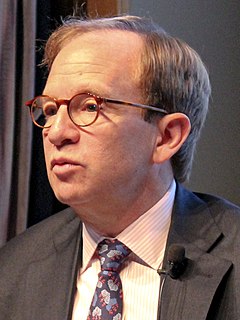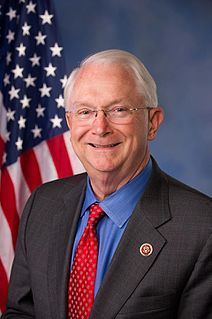A Quote by T.R. Reid
Mortgage is one of the most popular deductions. It costs the Treasury about $103 billion a year. Now that's money we could use to treat wounded veterans or reduce the deficit or fill the border. Instead, we give it a subsidy to homeowners, and it goes mainly to the richest homeowners in America, because only one third of Americans itemize their deductions. It doesn't work. Many countries have gotten rid of the mortgage interest deduction. Almost all of them have higher homeownership rates than we do.
Quote Topics
About
Almost
Almost All
America
Because
Billion
Border
Costs
Could
Countries
Deduction
Deductions
Deficit
Fill
Give
Goes
Gotten
Higher
Homeowners
Homeownership
Instead
Interest
Mainly
Many
Money
Mortgage
Most
Now
Only
Popular
Rates
Reduce
Richest
Rid
Subsidy
Than
Them
Third
Treasury
Treat
Use
Veterans
Work
Wounded
Wounded Veterans
Year
Related Quotes
Escrow accounts are an important tool for homeowners to the reduce the risk of mortgage default on high-priced loans. Millions of Americans, including my wife and I, utilize these accounts to make monthly payments towards the annual financial obligations that come with homeownership like taxes and insurance.
You know what higher interest rates mean. To you it means a higher mortgage payment, a higher car payment, a higher credit card payment. To our economy, it means business people will not borrow as much money, invest as much money, create as many new jobs, create as much wealth, raise as many raises.
Starting in the '80s or so, after the United States sharply cut its rates, other countries decided they better do it too, and here's how you do it: you just wipe out the exemptions, the deductions, the credits, the depreciation allowances. And people complain, "Oh my God, it's terrible," but you give them much lower rates and you give them an easier form to file, and people accept that tradeoff.
Student debt is crushing the lives of millions of Americans. How does it happen that we can get a home mortgage or purchase a car with interest rates half of that being paid for student loans? We must make higher education affordable for all. We must substantially lower interest rates on student loans. This must be a national priority.
President Lyndon Johnson's administration was known for his War on Poverty. President Obama's will become notable for his War on Prosperity. We're speaking, of course, of Obama's plans to hike income taxes on the most wealthy 2 or 3 percent of the nation. He's not just raising the top rate to 39.6 percent; he's also disallowing about one-third of top earner's deductions, whether for state and local taxes, charitable contributions or mortgage interest. This is an effective hike in their taxes by an average of about 20 percent.
One might ask the question: Is the mortgage interest deduction doing a better job, a worse job, if it's supposed to promote homeownership and savings? Because home ownership is the biggest form of savings in this country. Different people will look at that data and draw different conclusions, but that's just an example of the kind of thing you can pull out of USAFacts and develop a point of view about.
Unfortunately, throughout the housing crisis we've seen innocent homeowners who have been victims of shady mortgage lenders and unscrupulous individuals who have used a down market to line their own pockets at the expense of others. This bill is designed to send a message by revising our laws to ensure criminals are brought to justice and that law enforcement has the tools to uncover these fraudulent schemes and go after the bad actors. Criminals should be put on notice that ripping off homeowners and taxpayers won't be tolerated.

































